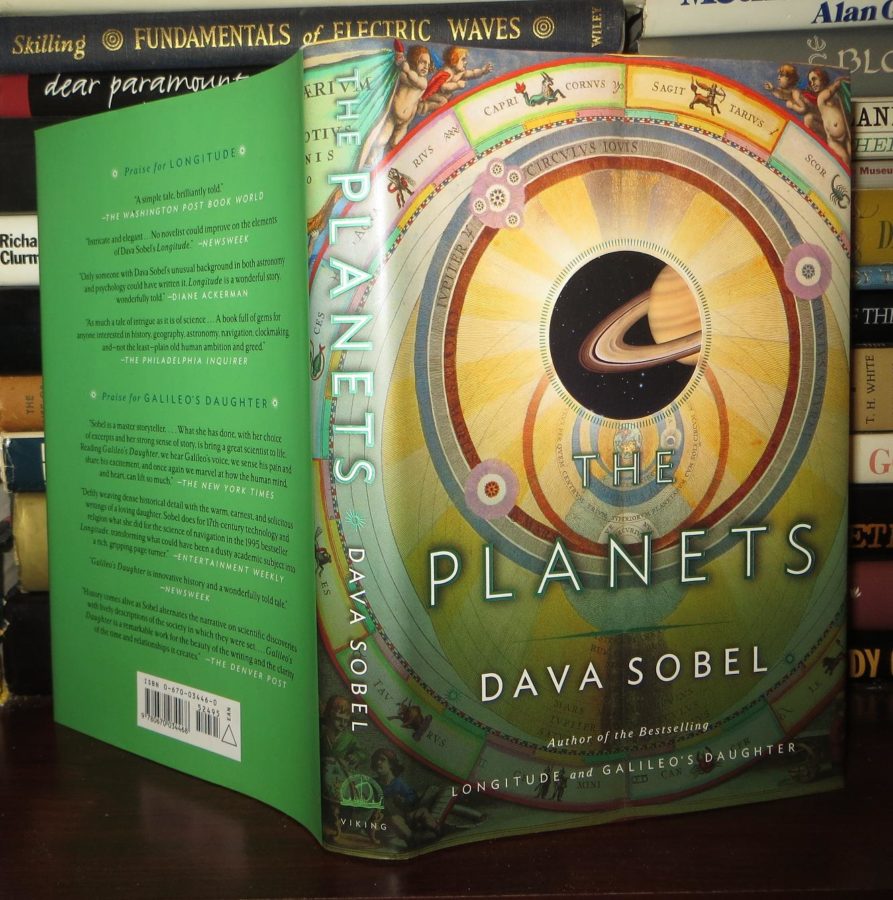Review: The Planets
The Planets by Dava Sobel is a nonfiction book that was published on December 6, 1996. The book takes the reader on a journey throughout our solar system, stopping for a tour on each planet. Every so often, the tour will pause so all can hear a poem being read out or to see a picture. But while this summary may make the book seem highly appealing, magical almost, sadly the writing style is nothing worth the time or day to read. This ‘author’ has found a way to ruin the solar system for me for the next few months. The writing style of The Planets is one that reeks of trying too hard that makes this book exasperating which makes the book one I can not stand to read.
Each chapter goes into detail about the science that involves each planet while trying to make each entertaining to the reader. There are chapters on the eight main planets (Uranus and Neptune share a chapter) then additional chapters on how the author got interested in learning about space, the Moon, Pluto, and Coda. Each chapter provides scientific insight into that planet. With each of these chapters, it’s obvious that the author is meant to inform the reader about our solar system while trying to entertain as well, which in my opinion is just annoying.
While this is supposed to be about a chapter I enjoyed, instead I am going to focus on a chapter that made me want to throw the book across my room for its irksome nature and wording. The chapter is titled “Beauty” and is all about Venus. While Venus is named after the Roman God Venus, this does not mean that you should personify the whole planet as a woman that has control over what properties the planet has. Planets are not living things (even though Earth has living things on it, the Earth itself is still not living), they do not have control over anything. Also in the English language, inanimate objects do not have pronouns or genders. While someone may bring up the point of personification, I can assure you that personification makes a piece of writing better, not so bad it is to the point of violence.
The only important conclusion the author makes about this is that there is a way to make the amazingness of planets and space, a boring unreadable mess. The only people that will be able to read this are those that have no sense in good writing or those that are learning to write, for which this book would be a good guide of what not to do. Even asking if this book is a good fit, is borderline offensive since it assumes that I do not even have the competence to tell the badness of this book. Despite me being an avid science reader, my eyes shall always go searching through the writing style first to tell if it’s worth my precious time.
While I may have some issues with this book, I do think that it does bring up the idea of what a good writing style is and what are annoying tactics that an author may use. I feel that this book is not one of the better science books that a person that is interested or a professional in the subject should read. The only thing this does for society is help show that New York Times best selling authors can write horrible things and hopefully encourage new writers to publish even if they think it’s bad because apparently The New York Times will give awards to bad writers. And for readers interested in science, this book does provide information but a dry ten page collage reading does the same thing, and it may even do it better.

Brooke is here. Brooke is in the grade below the seniors but above the sophomores. Brooke likes the tacos and the meatloaf of food. Brooke does the Board...

